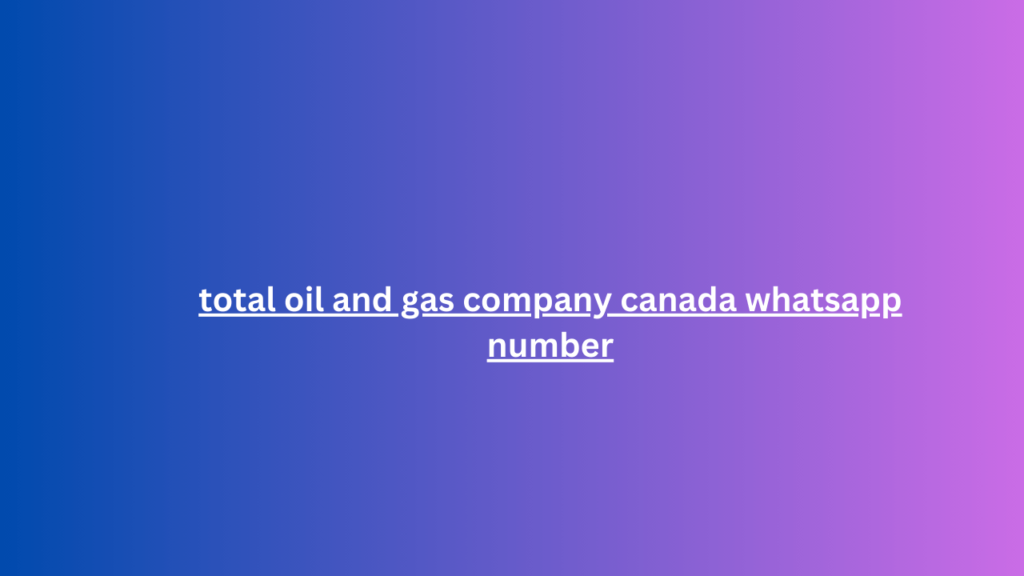Computer Assisted Web Interviews (CAWI) are interviews conducted
Posted: Sun Dec 22, 2024 9:48 am
They have the advantage of being able to reach small groups of users, being quick to complete and relatively low in cost. The anonymity of respondents makes it easier to obtain answers to sensitive questions; however, it also increases the risk of inaccurate answers, which is the main disadvantage of this method. The popularity of CAWI surveys has increased considerably in recent years due to the spread of the Internet.
PAPI (Paper and Pencil Interview) is a traditional method that consists of recording the respondent's responses on a paper questionnaire during a face-to-face interview. The data collected are total oil and gas company canada whatsapp number then coded and subjected to analysis. The main disadvantages of this method are the relatively high financial outlay due to the need to print the forms, the time it takes to conduct such an interview, and the risk of coding errors when transferring the responses obtained for analysis.
CAPI (Computer Assisted Personal Interview) is similar to PAPI, but this type of survey uses mobile devices, such as a tablet or laptop, into which the respondent's responses are entered directly. Using a computer eliminates the known problems with the PAPI method of coding errors.

Qualitative methods are used if the client is more interested in getting to know the motives, habits, perceptions and reasons for the behaviour of a certain target group than in quantitative parameters. This type of research allows for the identification of a new market. Qualitative research can be a stand-alone method in a project or used to verify hypotheses and to further explore the findings of quantitative research.
A focus group interview consists of a discussion between respondents with similar characteristics. A focus group interview focuses on a specific topic and is conducted according to a scenario predetermined by a designated moderator. The scenario consists of questions and a description of hypothetical situations that stimulate the co-interviewees to freely discuss the topic. FGI research allows for greater involvement of participants, whose individual opinions are confronted and complemented. These advantages make focus group research increasingly popular.
The IDI (In-Depth Interview) is based on a personal and in-depth conversation with the interviewee. The IDI does not have a rigidly defined script and requires the interviewer to flexibly adapt to the interviewee's answers, so that all topics are covered despite freedom of expression. This type of interview is carried out when we are interested in knowing the detailed opinion of a small group of people, such as industry experts.
PAPI (Paper and Pencil Interview) is a traditional method that consists of recording the respondent's responses on a paper questionnaire during a face-to-face interview. The data collected are total oil and gas company canada whatsapp number then coded and subjected to analysis. The main disadvantages of this method are the relatively high financial outlay due to the need to print the forms, the time it takes to conduct such an interview, and the risk of coding errors when transferring the responses obtained for analysis.
CAPI (Computer Assisted Personal Interview) is similar to PAPI, but this type of survey uses mobile devices, such as a tablet or laptop, into which the respondent's responses are entered directly. Using a computer eliminates the known problems with the PAPI method of coding errors.

Qualitative methods are used if the client is more interested in getting to know the motives, habits, perceptions and reasons for the behaviour of a certain target group than in quantitative parameters. This type of research allows for the identification of a new market. Qualitative research can be a stand-alone method in a project or used to verify hypotheses and to further explore the findings of quantitative research.
A focus group interview consists of a discussion between respondents with similar characteristics. A focus group interview focuses on a specific topic and is conducted according to a scenario predetermined by a designated moderator. The scenario consists of questions and a description of hypothetical situations that stimulate the co-interviewees to freely discuss the topic. FGI research allows for greater involvement of participants, whose individual opinions are confronted and complemented. These advantages make focus group research increasingly popular.
The IDI (In-Depth Interview) is based on a personal and in-depth conversation with the interviewee. The IDI does not have a rigidly defined script and requires the interviewer to flexibly adapt to the interviewee's answers, so that all topics are covered despite freedom of expression. This type of interview is carried out when we are interested in knowing the detailed opinion of a small group of people, such as industry experts.